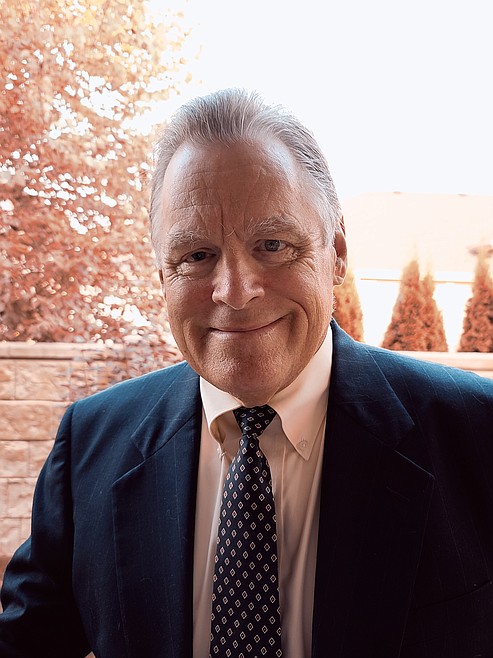McGeachin wasn’t a ‘team player’ for long
As difficult as this is to believe, given Lt. Gov. Janice McGeachin’s drama-filled term in office, there was a brief moment when she served a viable function in Gov. Brad Little’s administration.
In 2019, McGeachin’s first year in office, Little appointed her to lead a Regional Government Efficiency Working Group to examine all aspects of state government and make recommendations for improving operations.
It seemed to be a good move by the governor. McGeachin, a former state representative from Idaho Falls, served on the Joint Finance-Appropriations Committee and chaired the House Health and Welfare Committee during her time in the Legislature. If there was an ounce of waste in state government, McGeachin and her working group were equipped to find it.
As it turned out, the “waste” that the group found would hardly cover the cost of a breakfast burrito in relative terms. Soon after, COVID-19 hit, McGeachin objected to some of Little’s policies, and the relationship went sideways — creating the foundation for her run for Little’s job.
But the working group managed to come up with three recommendations a few months before the falling out.
• The first was to create a pilot program “whereby appropriate fleet cars are eliminated at suitable locations.” The group suggested “that any legislation, investigation, contractual accommodations, and budgetary adjustments necessary for the implementation of the pilot program move forward at the first opportunity.”
• The second installment praised the Department of Labor for its “leadership in improving access to services in a fiscally responsible manner.” The panel encouraged other agencies with regional offices “to explore ways to increase accessibility to rural Idaho while maintaining or lowering overall costs to taxpayers.”
• The third was something that seemed to be in the works anyway. The group recommended “that state agency heads actively seek opportunity to accommodate moves to the Chinden Campus through planning and cooperation across state government.”
Contain your excitement, folks.
Since then, McGeachin has kept herself in the spotlight, playing to her right-wing base — the folks who could lead her to stardom and glory. She has used her role as “acting governor” (when Little left the state) to impose executive orders that were immediately rescinded when the governor returned home. She created a task force to study critical race theory and built up legal bills to fight the Idaho Press Club’s successful lawsuit over public records.
That’s accomplishing a lot for an office that has the most mundane of job duties.
Now her office is facing a potential budget shortfall, which is practically unheard of for constitutional officers. During Little’s 10 years as lieutenant governor, he typically turned back to the state a few thousand dollars each year of unused budget funds.
It’s too bad that McGeachin’s working group didn’t dig deeper to find fat in government spending. They could have come up with a doozy of a recommendation — one that her friends with the Idaho Freedom Foundation might like.
Just get rid of the lieutenant governor’s position entirely. It’s not necessary even when a lieutenant governor works in concert with the administration. Sure, the constitution would need to be changed, but that’s what amendments are for.
A lieutenant governor’s only pressing responsibility is presiding over the Senate during a legislative session and break tie votes. The Senate’s president pro tem, or any other Republican in that chamber, could preside. As for the rare tie votes, not a problem. A bill that does not receive majority support fails. Problem solved.
Then, we can get rid of that silly rule that requires Idaho to have an “acting governor” when the governor is out of state. The rule must have been devised during wagon trains and Pony Express, because it certainly doesn’t have relevance today. And it’s certainly not useful when a lieutenant governor sneaks through politically driven executive orders as the governor’s plane crosses into another state.
So, what happens if the governor dies, or takes a presidential appointment? Let’s just have a special election. There’s no need for a preening politician to be boasting about being a “heartbeat away” from being governor.
John Nance Garner, who served as vice president under Franklin Roosevelt, said his job as “not being worth a bucket of warm spit.”
That description applies to lieutenant governor — and the way that Idaho’s drama queen has handled the job.
• • •
Chuck Malloy, a longtime Idaho journalist and Silver Valley native, is a columnist with Idaho Politics Weekly. He may be reached at ctmalloy@outlook.com.

